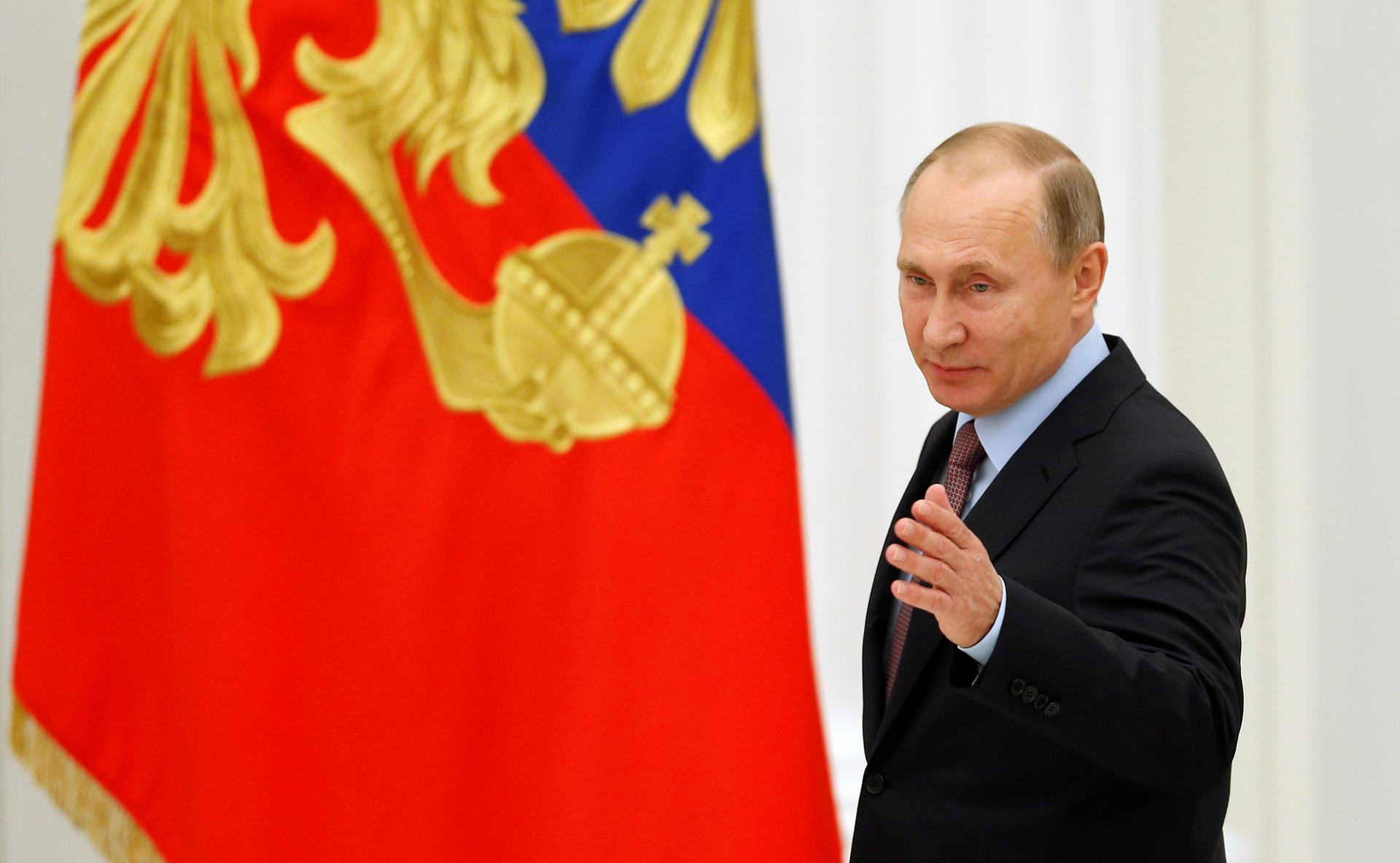Russian President Vladimir Putin at a meeting in the Kremlin last November
The Russian Federation inherited a variety of intelligence organizations from the Soviet Union, and has added more. The Russian intelligence community also inherited many techniques from its Soviet predecessors.
“Most of the time,” says Mark Kramer, director of Cold War studies at Harvard, “Russian intelligence focuses on intelligence gathering. That’s true of almost every major intelligence service in the world.”
But Kramer adds there have been many occasions when the Russians have tried to shape events and not just monitor them.
“The Soviet Union on many occasions tried to influence US politics, and even to meddle in presidential elections,” he adds.
“In 1968, the Soviet ambassador, Anatoly Dobrynin, was ordered by the Soviet politburo to approach the Democratic candidate, Hubert Humphrey, about providing clandestine funding,” says Kramer. “Dobrynin did this and Humphrey immediately turned it down.”
Then in 1976, the Soviets actively attempted to discredit a hawkish Democratic Senator from Washington state, Henry Jackson, after he won a primary election. “And so there was an effort made to discredit him; a campaign of disinformation. Soviet KGB sent forged FBI letters to newspapers in the United States claiming that Jackson was a homosexual, a closet gay man, implying that he was unfit to be president.”
“That vicious campaign unfortunately is typical of several other types of activities that the Soviet intelligence services engaged in,” says Kramer.
In more modern times, Russia has frequently attempted to shape events, particularly in its “near abroad,” in the countries of the former Soviet Union.
“It used cyber warfare — the first major effort in cyber warfare — by the Russian intelligence services came against a former Soviet republic, Estonia, which is now a member of NATO. That was in 2007," Kramer says. "And cyber warfare has been used against Ukraine; it has been used against several other countries, including those seeking to oppose Russia’s actions in Syria.”
